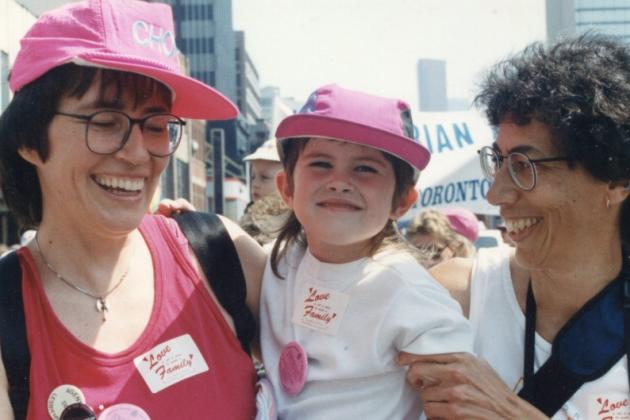
Source: CBC | Piya Chattopadhyay
Click here to listen to the radio segment
Vicky Stacey says that when her daughter Frances was a toddler, she thought all men were named “Daddy.”
“So she used to sneak onto the back deck when we weren’t looking and peer through the slats of our fence and speak to the neighbour next door,” Vicky says.
Frances would whisper “Daddy” to him “until the poor guy next door got so uncomfortable that he would end up having to go inside.”
Vicky and her partner found that their daughter was aware there was “something different” about their family at an early age. Specifically: it had two moms and no dad.
“It can kind of feel like we’re living in a golden age of modern family,” says Out in the Open producer Lisa Bryn Rundle, “where all families are equal and we celebrate all the wonderful, creative, nurturing, beautiful ways that people are making family today.
“But I’ve come to see it’s not necessarily like that for the kids.”
Lisa’s son also noticed at an early age that his family was different from others. “There’s no daddy absence ‒ there’s just our family,” Lisa says. But kids’ television and entertainment ‒ which largely portrays the traditional, nuclear, mom-and-dad family ‒ can have a powerful effect on how those kids view families.
“We live in a culture that is very heteronormative,” says Makeda Zook, who is the now-adult child of two moms. “I think kids pick up on that.”
Makeda had a tough time in school when she was young. Other kids talked about their dads, and made her feel that her family was lacking for not having one.
But she’s proud of her family. And now, looking back, she’s grateful for whatever social difficulty it caused.
“If I hadn’t gone through the experience of having two moms, and going from feeling shame and fear around that to feeling pride and celebration and empowerment, I don’t think I would be who I am today,” Makeda says.
“And I like who I am today, so I’m really thankful for my family.”